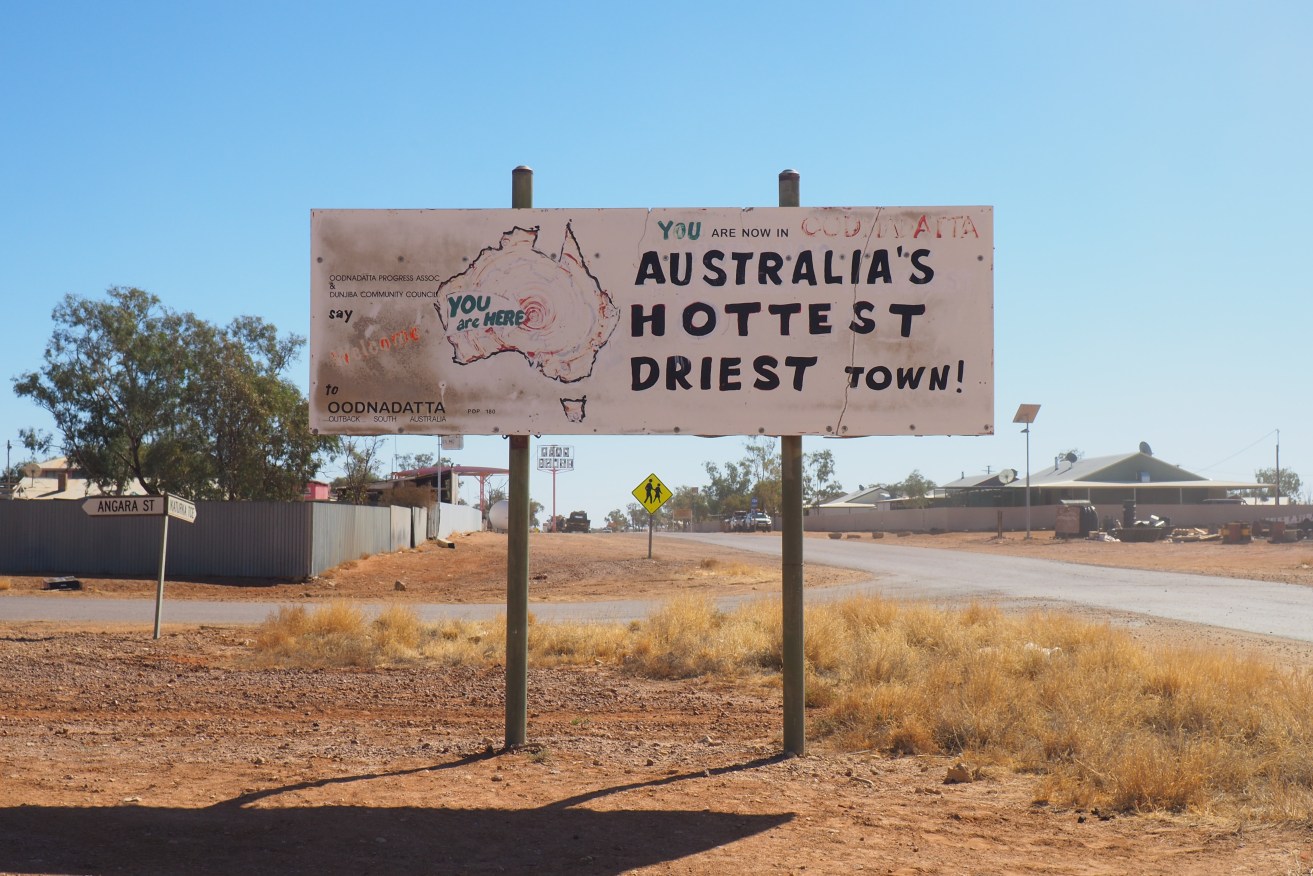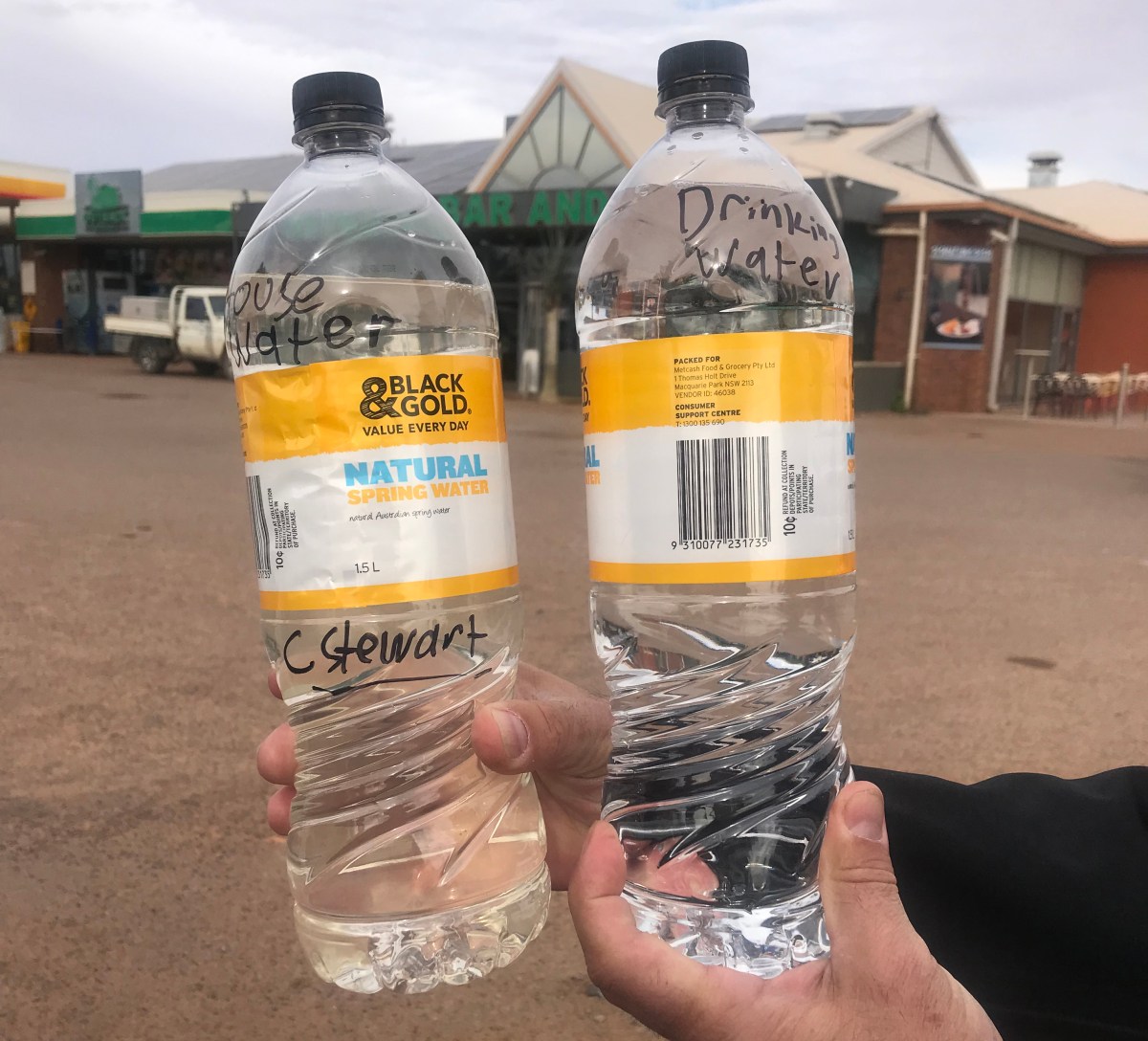Oodnadatta residents “suffering” from poor water quality: Aboriginal Health Council
Residents of the outback town of Oodnadatta are “suffering in conditions that we wouldn’t expect anyone in our community to live with day to day” due to their poor water quality, the state’s peak Aboriginal health group says.

Oodnadatta residents have for years been supplied with undrinkable bore water. Photo: Stephanie Richards/InDaily
The Aboriginal Health Council of South Australia (AHCSA) claims both the State and Federal Governments have been made aware of reports into the “poor water quality” and “unsatisfactory availability” of drinking water in Oodnadatta in the state’s far north since 2006, but no action has been taken.
SA Water has warned Oodnadatta residents not to drink the bore water it supplies to houses as it may contain the parasite naegleria fowleri which, when inhaled, causes a rare but almost always fatal brain infection.
The SA Housing Authority has also warned Oodnadatta residents against drinking what it calls “undrinkable” and “unfiltered” rainwater, as the tanks provided at its leased properties are not intended to supply drinking water.
The situation leaves Oodnadatta residents to choose between drinking the questionable bore or rainwater, buying expensive bottled water, or taking containers to a clean water outlet set up in the town’s main street, which the State Government says is mainly for passing tourists and which costs $4 for 20 litres.
InDaily reported yesterday that the State Government had convened a cross-government working group to examine water supply issues facing remote communities.
That group currently comprises government agencies and departments, but AHCSA CEO Nahtanha Davey has asked to have her organisation also included as “it is important that the particular water needs of Aboriginal communities, and particularly remote communities, is given the consideration they deserve”.
She said AHCSA was “morally bound to advocate on such an important matter” and that while the “remoteness of Oodnadatta may make it easy to overlook, people there are suffering in conditions that we wouldn’t expect anyone in our community to live with day to day”.
“The availability of safe drinking water in remote communities is not a new issue, Davey said.
“As far back as 2006 reports have been made of the poor water quality and the unsatisfactory availability of an alternative option for the Oodnadatta community, but to no avail.
“Aboriginal people have (a) right to affordable clean water, in sufficient quantity to meet daily needs – which is likely to be increasing with climate changes and higher temperatures – and of a quality which does not add to the health burden.”

Left: bore water plumbed to SA Housing Authority properties in Oodnadatta. Right: water sourced from a clean drinking water station in the town. Photo: Stephanie Richards/InDaily
InDaily contacted the State Government for comment but is yet to receive a response.
SA Water has prioritised Oodnadatta as the first of 19 communities without clean drinking water across the state to receive upgraded treatment infrastructure in its 2020-2024 regulatory plan.
The agency said its customers – not the State Government – were happy to pay extra to fund the work if it received the go-ahead from ESCOSA.
But the Essential Services Commission of SA (ESCOSA) rejected the proposal – estimated to cost up to $200 million – as a “partial solution that provides limited incremental benefits to a small number of customers at a very high cost” in its draft determination handed down on Wednesday.
Davey said AHCSA supported SA Water’s proposal, despite it being “certainly not cheap”.
“In difficult economic conditions it is understandable why some stakeholders are keen to see a greater return to the consumer rather than having consumers cross-subsidise a remote community,” she said.
“Access to clean water, however, is a fundamental and important right.
“If the proposal by SA Water to fund the rectification works for Oodnadatta through customer contributions is rejected, the matter cannot simply be passed on or set aside.
“We are calling on the Government to commit to fund the rectification work if ESCOSA does not allow it to be funded through consumer contributions.”
Treasurer Rob Lucas said earlier this week that the Government “would have to consider” whether it would be open to funding water treatment infrastructure for remote towns once ESCOSA handed down its final determination in May.
Want to comment?
Send us an email, making it clear which story you’re commenting on and including your full name (required for publication) and phone number (only for verification purposes). Please put “Reader views” in the subject.
We’ll publish the best comments in a regular “Reader Views” post. Your comments can be brief, or we can accept up to 350 words, or thereabouts.




